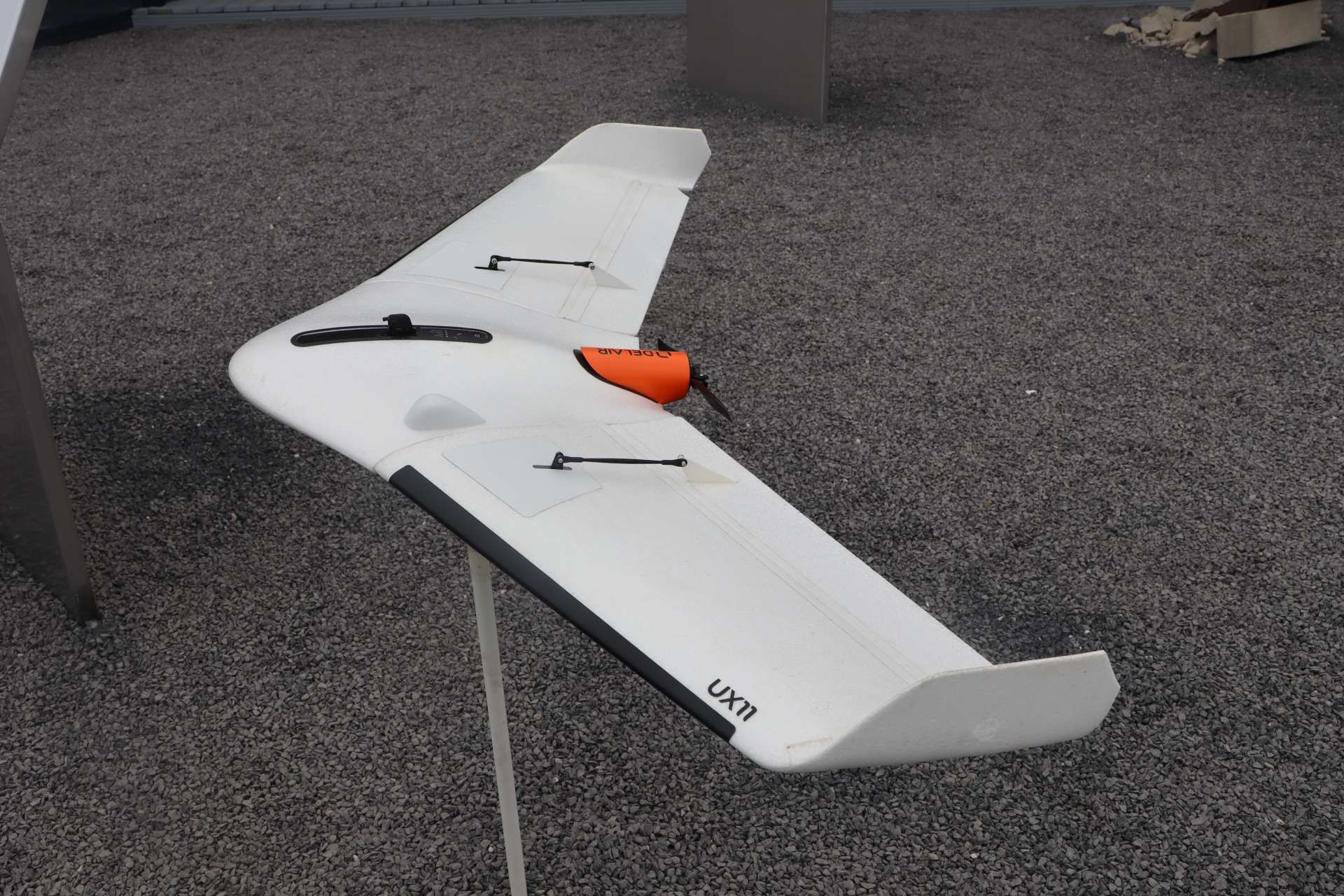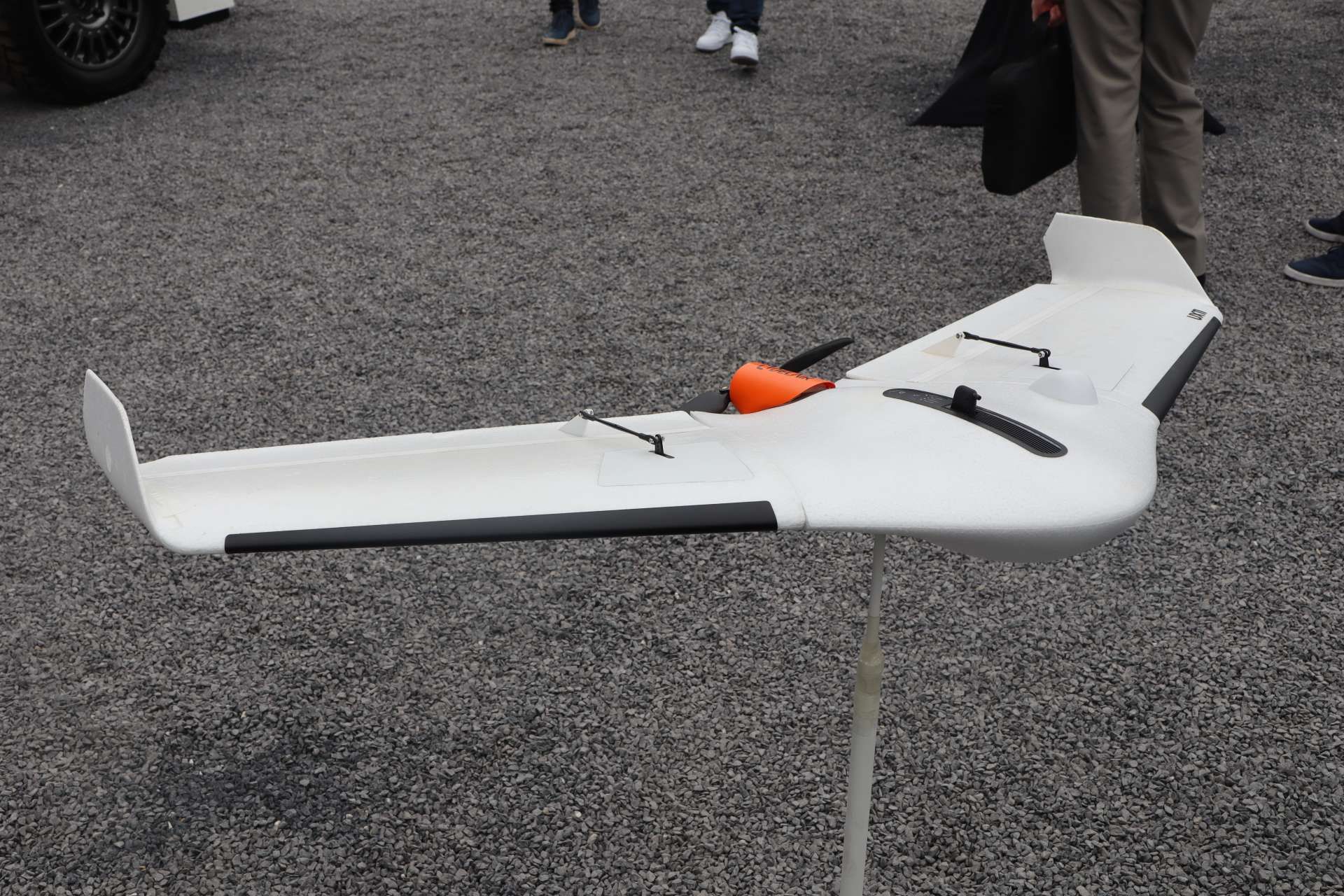Breaking News
France Tests Its First Loitering Munition Drone Set for Imminent Delivery to Ukraine.
French Defense Minister Sébastien Lecornu announced on social media the successful testing of France's first remotely operated munition, also referred to as a "kamikaze drone," on October 16, 2024. This development represents a significant step forward for French sovereignty in the strategic domain of remotely operated munitions. Designed by KNDS in collaboration with Delair, the UX11 drone model, also known as “Colibri,” will soon be delivered to both French forces and Ukraine, underscoring France’s commitment to supporting its allies while bolstering its own capabilities.

Video of the successful test of France's first remote-controlled munition, also known as a kamikaze drone. (Picture source: French MoD)
Colibri
The Colibri is a loitering munition drone specially adapted for short-range missions. Deployable in less than five minutes, this drone is built to target entities such as enemy infantry or unarmored vehicles. It has a 45-minute operating range and a communication distance of up to 25 kilometers, with fully encrypted data transmission. The communication security is further reinforced by operational capabilities in GPS-compromised areas, providing a versatile and resilient solution for contested environments.
This system carries a 500-gram payload with a next-generation pre-fragmented munition that can be triggered aerially if necessary. With its autonomous flight capabilities and video tracking system, the Colibri drone enables intelligence and targeting missions with high precision. In terms of design, it meets NATO STANAG standards, ensuring interoperability within NATO armed forces and enhancing its strategic value in multinational operations.
The Colibri’s priority targets include unarmored vehicles and infantry, offering an effective solution against mobile and dynamic threats both day and night. To facilitate its field use, the system is equipped with a training and combat software suite, a robust military-grade casing, and a simple, intuitive control station, ensuring swift and efficient deployment. The Colibri can be remotely controlled and comes with a comprehensive training program available in France or abroad to optimize its use in combat scenarios.

The Colibri is a loitering munition drone specially adapted for short-range missions. (Picture source: Army Recognition)
French Support to Ukraine
The Colibri’s development is not the only form of support offered to Ukraine. France has intensified its military aid to Ukraine in the field of drones to meet Kyiv's growing operational needs in the face of Russian aggression. This support includes the delivery of reconnaissance drones, participation in European initiatives, and training of Ukrainian forces in the use of these technologies. Since 2022, France has provided hundreds of drones and additional military equipment as part of an assistance package valued at over €3.8 billion.
A critical aspect of this aid is France’s contribution to the “Drone Coalition” led by Latvia and the United Kingdom, aimed at delivering one million drones for various missions in Ukraine. Supported by several European countries, this coalition supplies diverse types of drones adapted for surveillance, ground target attacks, and electronic warfare missions, thus enhancing the agility and autonomy of the Ukrainian army on the ground.
Additionally, France is working on developing loitering munition drones, or “kamikaze drones,” such as the Colibri, intended for use by both French and Ukrainian forces. This type of drone is designed to be rapid and flexible, capable of striking targets such as unarmored vehicles and infantry while remaining less vulnerable to enemy air defenses. These efforts aim to bridge the technological gap by equipping Ukraine with means to neutralize Russian units at a lower cost, contributing to an attrition strategy.
This approach highlights France’s commitment to developing autonomous capabilities and supporting Ukraine in facing modern military challenges posed by drones, a field where innovation and the rapid production of drones are increasingly strategic. This focus on mass production over quality was also emphasized by the French defense minister, who now prioritizes low-cost drones with a high cost-effectiveness ratio.

The Colibri at Eurosatory 2024. (Picture source: Army Recognition)
Conclusion
This French kamikaze drone program symbolizes a major technological advancement for the armed forces. In less than two years, France has developed a national solution that not only strengthens its strategic autonomy but also provides substantial support to Ukraine amid the ongoing conflict with Russia. The planned deliveries in the coming weeks underscore France’s urgency and determination to support its allies while enhancing its own drone warfare capabilities. This development thus marks a crucial milestone in the history of French defense and its adaptation to the evolving realities of modern conflicts.
Succès des essais de la première munition télé opérée - aussi appelée drone kamikaze - française.
— Sébastien Lecornu (@SebLecornu) October 16, 2024
Reconquête de souveraineté sur ce segment clé pour nos armées, en moins de deux ans.
Livraisons à l'Ukraine et à nos forces dans les prochaines semaines. pic.twitter.com/QfewB0gIAm


























